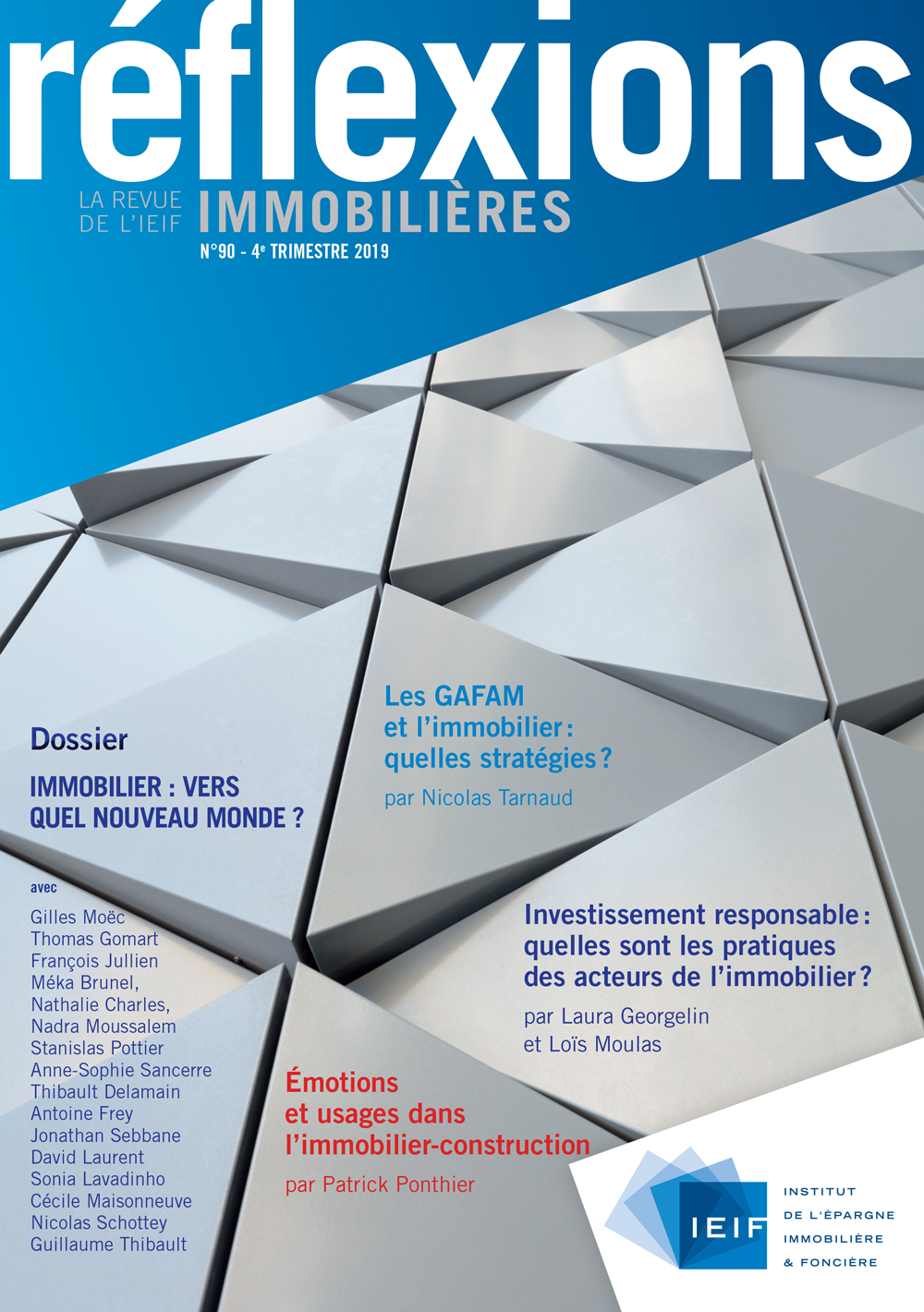- Home
- Studies and research
- “Factor Investing” by Primonial REIM
"Factor Investing" by Primonial REIM
Economic growth, changing uses, the Grand Paris Express… So many events that impact office real estate in respect of both the strategy of the users and the strategy of the investors.
As major investment player, Primonial REIM set out, in its new study on office real estate, to give the keys to its strategy on this market by applying a proprietary method. Focus on “Factor Investing”: a tool for evaluation of the tertiary markets.
Currently, certain key markets are experiencing very high entry prices compared to the revenues generated by certain assets. It is important therefore to identify sectors with a limited offering and which could see strong growth in rents, while the risks take their toll on the economic climate.
In this context, an analysis grid should be created in order to identify the markets where prices remain affordable and/or able to benefit from a favourable evolution to the rental market. Drawing inspiration from the finance sector, Primonial REIM Research and Strategy has developed an original tool for its investment strategies: “factor investing”. This approach consists of taking into account 6 factors that we have adapted to the real estate world across 50 criteria.

The six factors and the criteria upheld are as follows:
- Quality (growth in employment, deliveries of Grand Paris Express stations, stock, economic indicators and user indicators);
- Growth/Momentum (prospects of total return and cost of finance);
- Volatility (data on vacancy, market concentration, the future additional stock, the speculative offering, the historic volatility of the return);
- Value (rental data and data on pricing);
- Return (data on the real estate rate of return and the risk premiums);
- Liquidity (data on the investment market).
For the 50 criteria, we chose sets of data using an identical methodology for all markets we wanted to test. We were thus able to identify the exposure of each market to these factors.
Why “factor investing”? Because we think it is not the factors themselves that could potentially generate an outperformance in the long term, but the way in which they are combined. While the exposure to factors may be more tactical, the transition between the cycles of the markets may be more difficult to determine.
Discover how to apply this method and our conclusions in our study.
Discover Primopierre
The reference SCPI in office real estate
The team

With a university education in local economic development, Daniel While began his career as business establishment consultant to local authorities. In 2006, he joined the Institut de l’Epargne immobilière et Foncière as analyst, and specialised in the world of unlisted real estate funds (SCPIs and OPCIs for France).
He is co-author of the book Les OPCI published by Delmas (September 2008). He joined Primonial REIM in 2017, where he held the position of Development Director, then Research & Strategy Director from 2019.

Henry-Aurélien Natter joined Primonial REIM as Research Manager in January 2018. He has the mission of developing the analyses of the Research & Strategy Department on the real estate markets, the economy and capital in France and in Europe.
Henry-Aurélien Natter began his career at Les Echos Etudes (formerly Eurostaf), then at C&W (formerly DTZ), and lastly at BNP PRE, where he acquired solid and varied experience in real estate research, strategy and finance. He is qualified with an AES degree in Business Management, a Masters Decree in management and SME management, and an International Master in commerce and marketing.
You may also like

- Thematic study
Real estate investment, a global perspective
In this study, we want to offer a global perspective on the evolution of real estate markets, explore the diversity of responses provided by international players, and draw the outlines of what could be a “global real estate allocation” in the next cycle.

- Market review
Primonial REIM real estate convictions : 4th quarter 2023
After a slow year in 2023, 2024 will be a year of many challenges: challenges that are at the same time democratic, geopolitical, economic and financial.

- Market review
Primonial REIM real estate convictions : 3rd quarter 2023
A new phase is taking shape, with the ECB's stated intention to leave rates unchanged, thereby giving investors greater visibility.


 et Firefox
et Firefox 